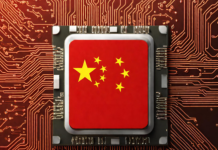Alibaba Cloud is becoming as integral to Chinese tech as electricity is to modern life. According to Joe Tsai, Group Chairman, a whopping 80% of tech companies in China and half of the country’s AI language model enterprises are already running on Alibaba Cloud. The cloud unit’s ambition doesn’t stop at providing storage and computing power; it aims to be the “most open cloud in the era of AI,” turning AI development into a walk in the park for everyone.
Alibaba is trying to make AI staple in muiltiple sectors
Alibaba Cloud has a history of focusing on efficiency, as seen in its role as a major sponsor of the Olympic Games since 2017. This drive is likely what’s underpinning its dedication to make AI easily accessible and affordable. It’s not just selling computing resources; it’s selling ease and efficiency.

But why does Alibaba Cloud matter to the average business or developer? Well, Alibaba is making some serious moves to make AI a staple in various sectors. At the recent Apsara Conference, the company unveiled its latest AI large language model, Tongyi Qianwen 2.0. This isn’t your average chatbot-trainer; it’s a high-capacity model that aims to perform well across a range of applications, from language understanding to arithmetic problem-solving.
What’s unique here is the company’s focus on generative AI via its GenAI Service Platform, allowing businesses to develop specialized AI models easily. This move has immense potential to democratize AI capabilities, making it more accessible for even small companies. In a rapidly shifting digital landscape, Alibaba Cloud’s commitment to open-source resources and tailored AI solutions could well be a game-changer.
But the road isn’t all easy for Alibaba. The tech giant is currently in a state of corporate restructuring, facing tough competition and an ever-changing internet ecosystem. Despite these challenges, its drive towards digital transformation is stronger than ever by being the first large-scale internet company to shift all of its businesses to the cloud.
RELATED:
- Alibaba.com is Attracting Merchants Affected by Regulations on TikTok ECommerce
- Chinese E-commerce Giants, like Alibaba, are Betting on Low Prices on Singles’ Day
- Best Smart Scales of 2023: Fitbit, Garmin, Eufy & More
(Via)







